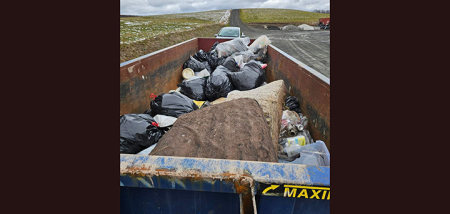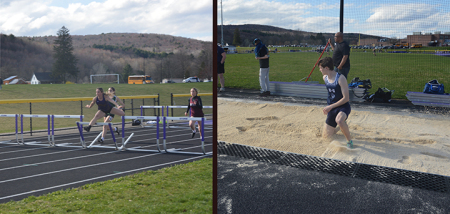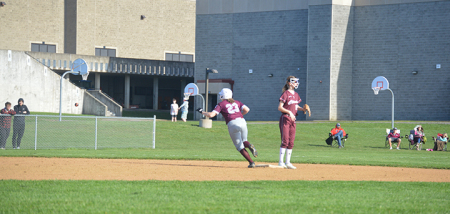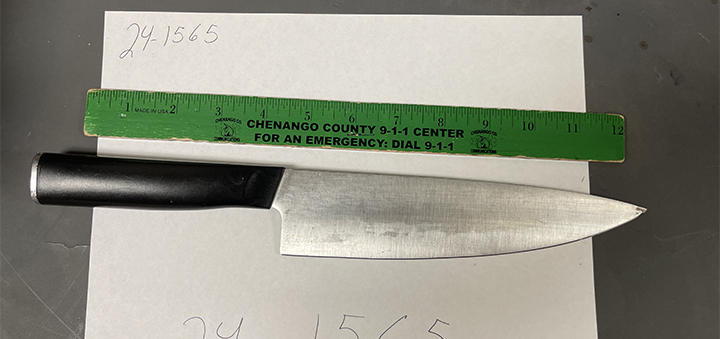Kicking Furiously, Heading For Land
Published:
July 14th, 2016
By:
Steven and Cokie Roberts
There actually is some good news in the world. As images of violence fill our tablets and TV screens -- from Dallas to Paris, Orlando to Istanbul -- every day also contains small acts of courage, generosity and devotion.
This year, for the first time, refugees will be allowed to participate in the Olympic Games. And since they will march under the Olympic flag, not the banner of any particular nation, they embody the Olympic ideal in a special way. They show how sport transcends tribalism or ethnicity or faith. How concepts like "faster, higher and stronger" are the same in any language.
"These refugees have no home, no team, no flag, no national anthem," said Thomas Bach, president of the Olympic Committee, in announcing the 10-member squad. "This will be a symbol of hope for all the refugees in our world, and will make the world better aware of the magnitude of this crisis. It is also a signal to the international community that refugees are fellow human beings and are an enrichment to society."
Bach's words are particularly welcome at a time when anti-refugee sentiment is rising so rapidly in so many places. The United Nations counts more than 21 million refugees worldwide; more than 65 million qualify as "forcibly displaced" from their homes. Yet many eastern European countries are passing laws and building fences to keep refugees out. Great Britain's vote to leave the European Union was fueled partly by fears of a refugee influx.
The Republican Party in this country is about to nominate a presidential candidate who loudly proclaims his plans to build a wall across our southern border. More than two dozen governors have rejected the resettlement of Syrian refugees in their states. Gov. Chris Christie of New Jersey says even 5-year-old orphans should be barred as security risks.
Athletes show how wrong the anti-refugee hysteria can be. Refugees and other immigrants can truly be "an enrichment to society." One example is runner Bernard Lagat, who won two medals for his native Kenya before moving to America. He represented the U.S. in 2008 and 2012, and will do so again in Rio in the 1,500-meter run -- his fifth Olympics, at age 41!
Dozens of American athletes at the 2012 London Olympics were foreign-born, including Leo Manzano, the son of an undocumented farm worker from Mexico. He came home with a silver medal in the 1,500. Good thing there was no wall keeping him out.
Lagat and Manzano found new countries. Yusra Mardini, one of two Syrian swimmers on the refugee team, is still looking.
Mardini's training in her home country was often disrupted by the war there -- "sometimes you had training, but there was a bomb in the swimming pool," said the 18-year-old. When she and her sister fled Syria last year and tried to reach Greece, their rubber boat started sinking, endangering all 20 people aboard, most of whom couldn't swim. The sisters leapt overboard and spent over three hours in the freezing water, helping kick the craft to safety.
"It would have been shameful if the people on our boat had drowned," said Mardini, who now trains in Germany. "If I was going to drown, at least I'd drown proud of myself and my sister."
Another refugee Olympian, Yolande Mabika, 28, is a judo artist from the Democratic Republic of Congo. She got separated from her family during her country's civil war when she was only 9, and wound up in a refugee camp. "I used to cry a lot. I started with judo to have a better life," she says.
Her teammate Popole Misenga, 24, has a similar story: "There were kids who were 5 and 6 who were actually fighting. I was trying to run away from that. I lost my mom in the conflict. When you are a child, you need to have a family to give you instructions about what to do, and I didn't have one. Judo helped me by giving me serenity, discipline, commitment -- everything."
The pair say they were abused by their home country's coaches -- starvation, isolation, even beatings were common -- and defected during the World Judo Championships in Brazil three years ago. So they have been refugees twice in their young lives.
When she competes on the refugee team, Mabika hopes her family, whom she hasn't seen since her defection, will be watching. "If my family sees me on television, I can give my number, everything," she says. "Because I want to talk with my dad and my brothers."
These refugees, and so many who didn't make the team, are all in the same boat. Or out of the boat, to be precise. They're in the water, kicking furiously, heading for land. And they need a hand.
– By Steve and Cokie Roberts, NEA Columnists
Comments
(1).jpg)






